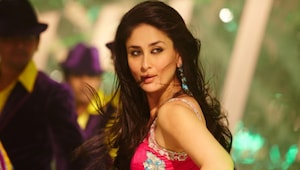The quiet work of books in the age of scrolling
From childhood escapes to adult reflections, reading holds the power to shape generations.

Everything I know has come to me through reading. And if I’ve learned one thing over the years, it’s that there are seasons in a reader’s life. When I was little, books were an escape. They were my secret doorways into forests where animals talked and nobody really died. I didn’t think of it as “building an inner world” back then, but that’s exactly what those poems and stories were doing—laying down invisible bricks of courage and kindness long before I knew those words. They gave me a quiet sort of strength, the kind you don’t notice until much later.
As a teenager, reading changed shape. It wasn’t just about running away anymore; it became a way to look inward. Neruda’s words or a verse by Rumi seemed to describe my restless heart better than any friend could. I can still picture myself sitting cross-legged in the school library, nose deep in yellowed, dog-eared pages, feeling seen in a way that conversations rarely allowed. When everything about being young felt like a moving target, books offered me the surprising comfort of permanence. That someone, somewhere, had felt exactly what I was feeling.
Then, adulthood shifted that relationship again. Now I read to return to myself, to history, to a slower rhythm. I follow a simple pact with myself: One chapter a day. The same novels I adored at fifteen speak differently now. Characters I once found heroic show their flaws. The endings I thought were happy reveal their quiet grief. Where I once chased plot, I now look for patterns. Where I once wanted tidy conclusions, I now welcome ambiguity. A great book doesn’t just sit on a shelf; it grows alongside you, revealing new rooms each time you walk back in. Becoming a mother has also made these thoughts sharper. My son is barely 17 months old, and I already wonder what reading will mean to his generation. Many children I know prefer typing to writing. Digital culture rewards brevity and instant clarity. Instagram has turned even poetry into a visual snack—a pretty picture, a hashtag, a Reel. There’s charm in these fragments (I post them myself), but their very design discourages depth.
Artificial intelligence adds another layer. Large language models can summarise Tolstoy’s War and Peace in a paragraph or spin a poem in seconds. It’s clever, but it skips the slow wrestling with a stubborn paragraph and the quiet victory of a sentence that shifts your inner weather. The machine can take you to the destination, but not on the journey. I’m not anti-technology. I’m aware that digital tools can amplify literature and give forgotten voices a stage. It even allowed me to reach audiences that I would’ve otherwise had no access to, but they can’t replace the long negotiation between the reader and the text. The silent hours when the mind stretches beyond the immediate and the measurable. Instagram offers snapshots; books offer landscapes. One can enjoy both, but to live only in snapshots is to mistake the horizon for the whole world.
The answer isn’t withdrawal, it’s balance. Let AI write your grocery list, but let a poem rearrange your soul. Encourage the next generation to see deep reading not as homework but as an act of self-making. Suggest that they revisit beloved books at different ages and notice how both the book and their inner selves have changed. Because reading across ages is less about the books themselves than about the inner architecture they build. I am no longer afraid of Great Expectations’ Miss Havisham—who is stuck in the past—in fact, I empathise with her. I no longer want a Mr Darcy from Pride and Prejudice, but I understand the reason Elizabeth Bennett found him suitable. Shantaram’s Karla doesn’t sound “too real” to me anymore, and I can totally imagine my life branching out in front of me like a fig tree, much like Sylvia Plath did in The Bell Jar.
Childhood wonder, teenage recognition, adult reflection—these aren’t separate shelves but chapters of one unfolding story. The books we love are not just tales we consume; they are maps of who we were and blueprints of who we can still become. If we keep reading, we keep becoming.
Priya Malik is a spoken word poet and storyteller with a deep-rooted love for reading, especially classics. She holds a degree in Literature and Applied Linguistics.
Lead image: Getty Images
This article first appeared in Cosmopolitan India's September-October 2025 print edition.
Also read: Ranveer Brar reveals how he juggles cooking, acting, and poetry
Also read: October is the new January, and Gen Z’s ‘October Theory’ proves it
more from Life

NAAR and Quintonil: Bringing a taste of Mexico to the Himalayas

This Worli café is all about comfort, caffeine, and slow sips

Elie Saab brings couture-inspired luxury residences to India

Not a drill: the plot of the third 'Game Changers' book about Ilya and Shane just dropped!

What we know about 'The Drama', the Zendaya–Robert Pattinson film that’s keeping its cards close

Sorry, not sorry—over-apologising is holding you back and here’s how to fix it

The 75 hotter fitness challenge proves you don’t need burnout to build better habits

Inside the high-street sound machine: What Zara and H&M playlists are really doing to your brain

The rise of Brotox: Memes about male celebs looking *different* are rife - what's really going on?

Can “friendfluence” save dating?
